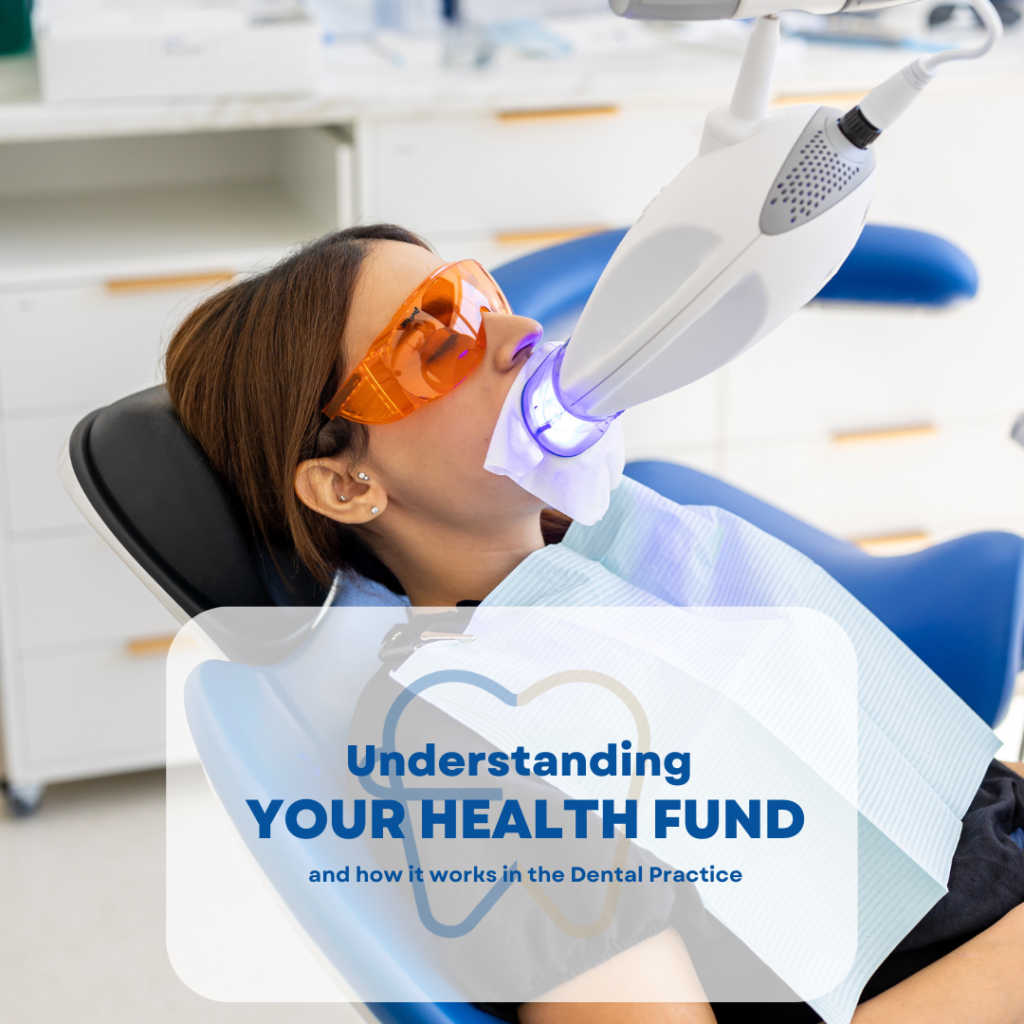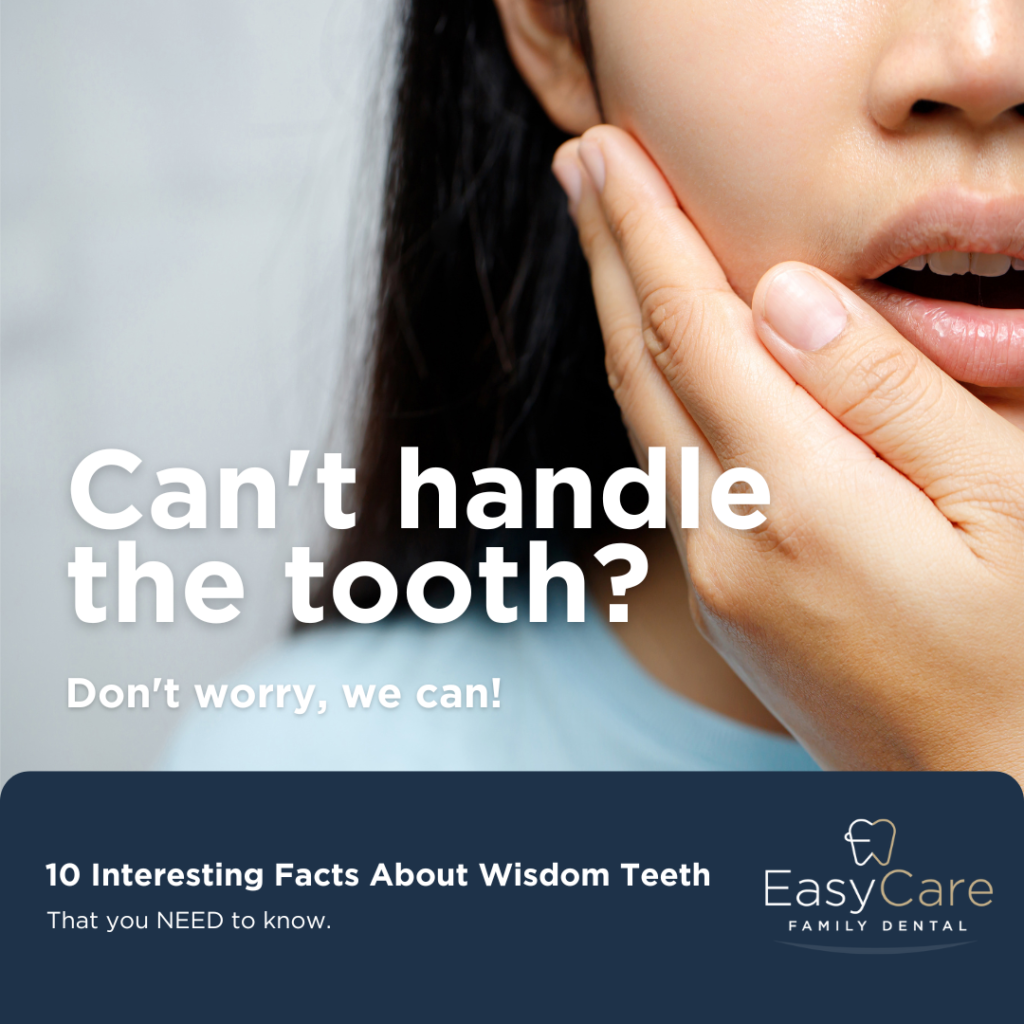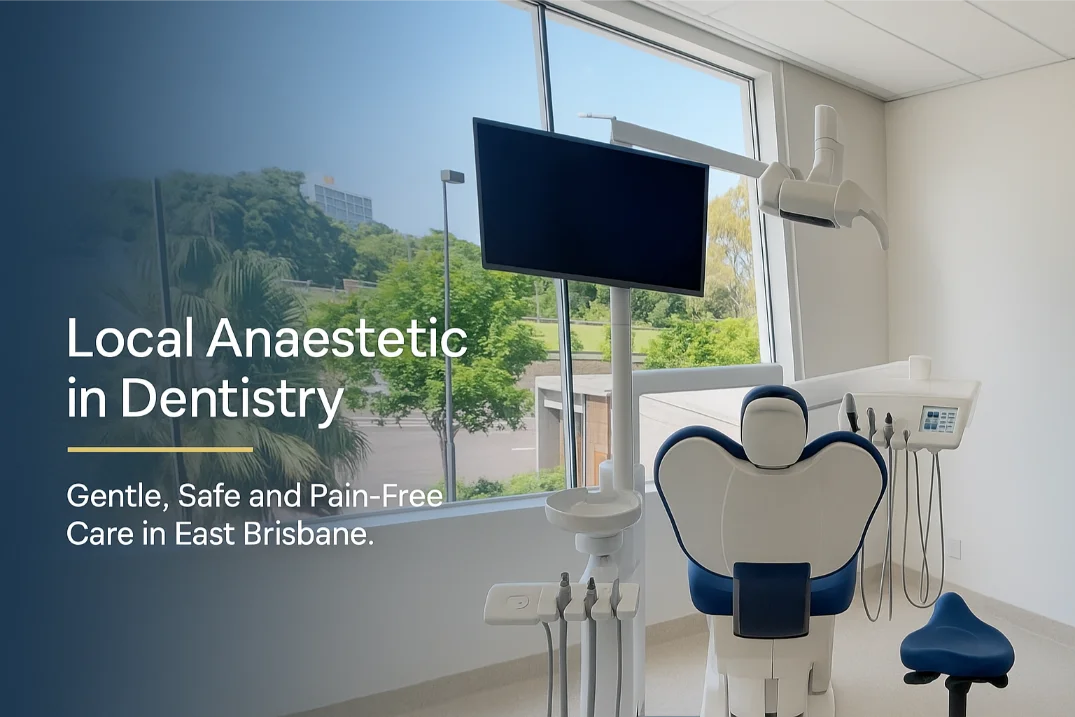
Local Anaesthetic in Dentistry
Gentle, Safe and Pain-Free Care in East Brisbane
At EasyCare Family Dental, your comfort comes first. With modern local anaesthetic techniques, most dental treatments are virtually pain-free. Whether you’re visiting for a small filling or a more complex procedure, our focus is to help you feel relaxed, informed and confident in your care.
What is a Local Anaesthetic?
A local anaesthetic is a safe medication that temporarily blocks nerves from sending pain signals. You stay fully awake, but the area being treated feels numb. This allows your dentist to complete treatment comfortably while keeping you at ease throughout the procedure.
Commonly used local anaesthetics in dentistry include lidocaine, articaine, mepivacaine and prilocaine. The choice depends on the type and length of the procedure, as well as your individual needs.
How We Make You Numb – Quickly and Comfortably
- Topical gel - numbs the gum surface before the injection.
- Infiltration - a small injection beside the tooth, used for most upper and lower front teeth.
- Nerve block - targets a main nerve to numb several lower teeth at once (commonly for back teeth).
The numbness usually begins within 2 to 3 minutes for infiltration and 4 to 5 minutes for a mandibular block. Soft tissues like your lip or cheek may stay numb a little longer, which is perfectly normal.
“We use advanced delivery systems, gentle techniques and a calm, step-by-step approach to ensure every patient feels comfortable and in control.”
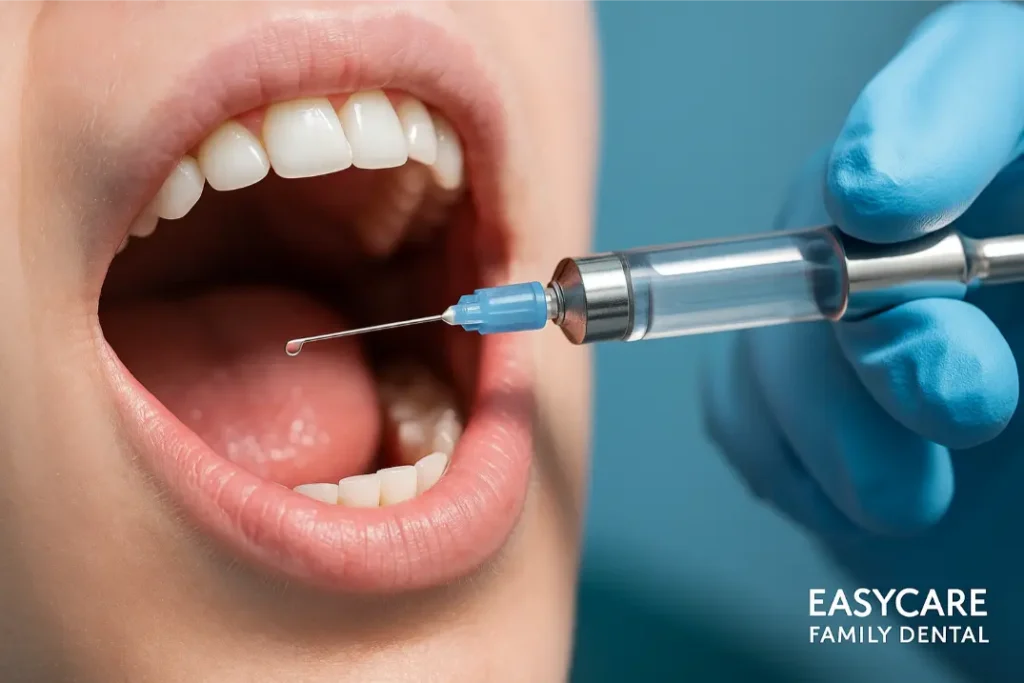
Why Some Anaesthetics Include a Vasoconstrictor
Adding a vasoconstrictor helps the anaesthetic last longer and reduces bleeding during dental procedures. Vasoconstrictors narrow blood vessels, slowing the wash-out of the anaesthetic from the injection site, which keeps the area numb for the entire treatment.
- Adrenaline (epinephrine) - the most commonly used option. It prolongs numbness and improves bleeding control. However, we avoid adrenaline-containing anaesthetic in patients with known sulfite sensitivity since some formulations contain metabisulfite preservatives.
- Felypressin - an alternative vasoconstrictor with minimal effect on the heart muscle. It’s considered safe for most patients and suitable for use during pregnancy when clinically indicated.
“At EasyCare Family Dental, we carefully select the type of anaesthetic and vasoconstrictor based on your health history, ensuring both safety and effectiveness for every patient.”
Safety, Side Effects and Our Standards
Local anaesthetics are extremely safe when administered by trained professionals. Most side effects, if any, are mild and temporary — such as slight swelling, tenderness at the injection site, or a tingling sensation as the numbness fades.
Our dentists are trained to recognise and manage rare complications, and our surgery maintains emergency medications and resuscitation equipment as part of our QIP-accredited safety protocols. These steps ensure every treatment is provided in a controlled and safe environment.
Common Mild Effects
- Slight soreness or swelling where the anaesthetic was given
- Temporary tingling or difficulty speaking until numbness wears off
- Short-lived cheek or tongue numbness
Pregnancy and Local Anaesthetic
Dental treatment can be safely performed during pregnancy with appropriate precautions. When adrenaline is not suitable, felypressin is often chosen because it provides effective anaesthesia with minimal systemic effects.
We coordinate with your GP or obstetric team whenever necessary to ensure your treatment is both safe and comfortable. Our goal is to provide gentle dental care at every stage of life.
“Your comfort, safety and peace of mind guide every decision we make — from choosing the right anaesthetic to explaining every step of your visit.”
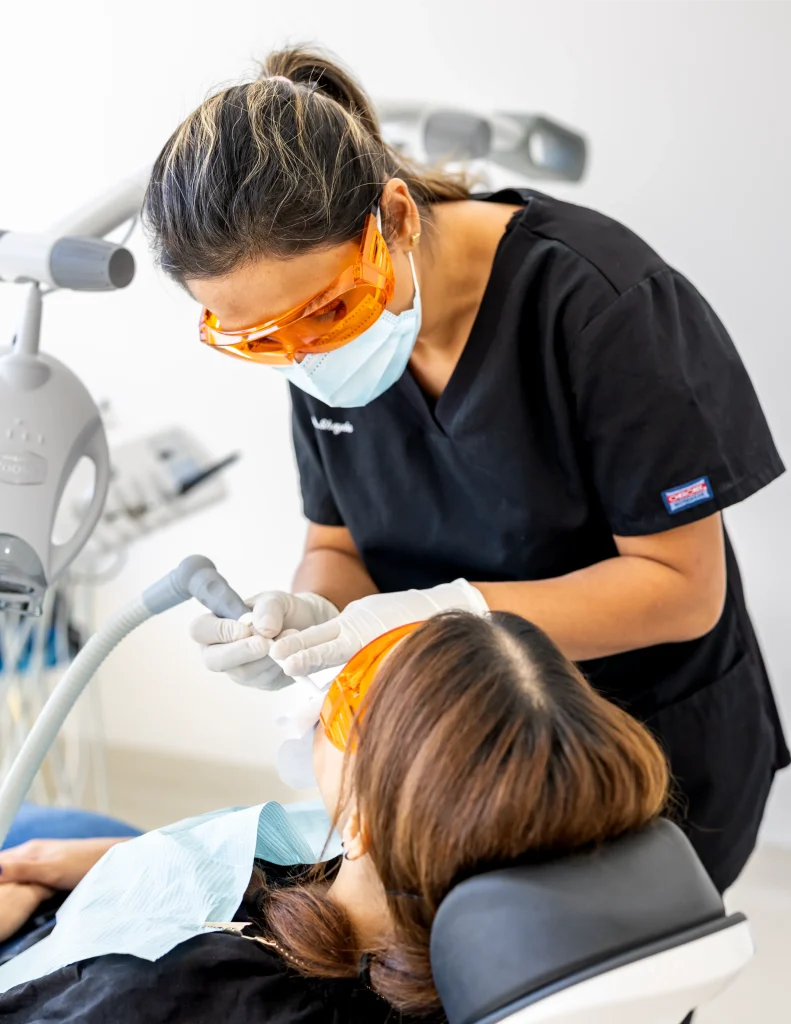
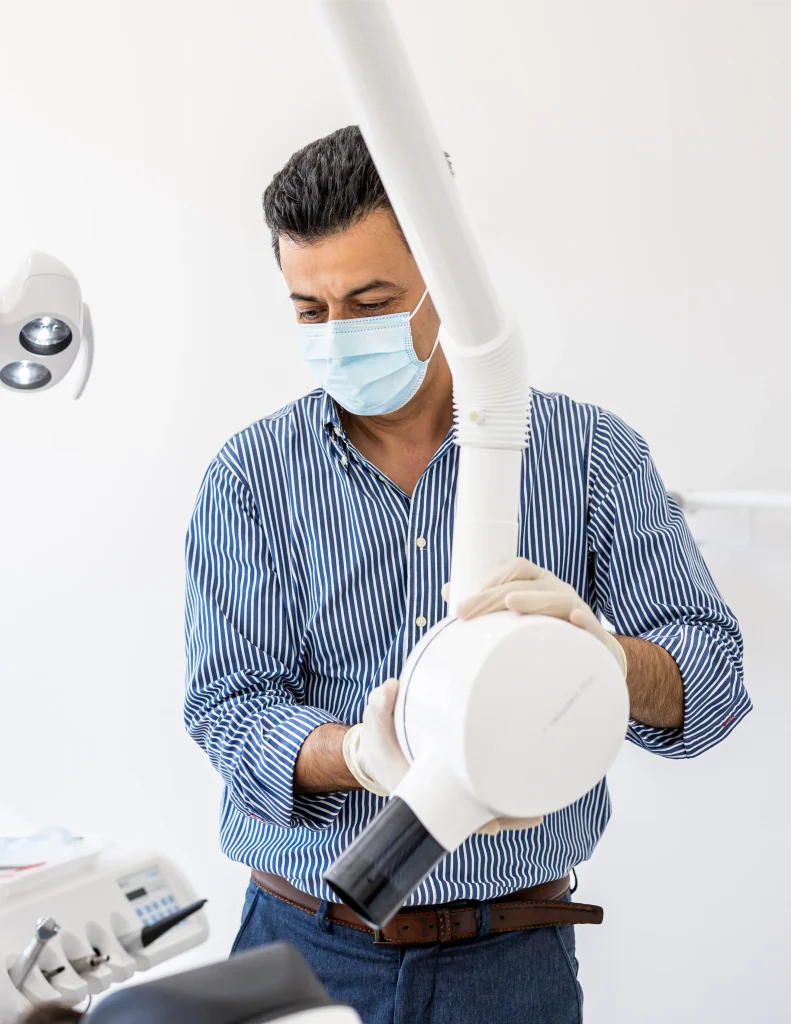
Aftercare Tips
Once your treatment is complete, the numbness will gradually fade over a few hours. During this time, take a few precautions to stay comfortable and safe:
- Avoid chewing until full sensation returns to prevent accidental cheek or tongue bites.
- Skip hot drinks until you can feel temperature again, to avoid burns.
- If your mouth feels tender, apply a cool compress to the area.
- Contact us if numbness lasts much longer than expected or if you notice swelling or unusual discomfort.
“We check every patient’s recovery carefully — your comfort after treatment matters as much as the procedure itself.”
If You Feel Anxious About Injections
It’s perfectly normal to feel nervous before a dental injection. At EasyCare Family Dental, we use a calm, step-by-step approach so you always know what’s happening and can stay in control.
- Topical gel to numb the gum before injection
- Ultra-fine needles and slow delivery for gentle administration
- Reassuring communication throughout your visit
- Short breaks anytime you need — just raise your hand
Most patients are surprised by how quick and comfortable the process feels. Many even say they didn’t feel the injection at all.
Frequently Asked Questions
Will I feel pain during treatment?
You may feel pressure or vibration, but not sharp pain. If anything feels uncomfortable, we pause immediately and top up the anaesthetic.
Why do my lips feel numb longer than the tooth?
Soft tissues retain anaesthetic longer than the tooth itself, which is completely normal. The sensation fades gradually within a few hours.
Is adrenaline safe?
Yes — at dental doses, adrenaline is safe for most people and helps the anaesthetic last longer. We avoid it for patients with sulfite sensitivity or certain medical conditions and use alternatives like felypressin.
Can I drive after local anaesthetic?
Yes. Local anaesthetic does not affect your alertness. Just wait until full sensation returns before eating or drinking hot liquids.
Our Honest Approach
We believe in transparency, gentle techniques and doing what’s right for every patient. Seeing you leave comfortable and confident is our ultimate goal.
Nervous About Dental Anaesthetic?
Local anaesthetic is used every day in dentistry to keep treatment comfortable and pain-free. If you have concerns about numbness, needle sensitivity or previous experiences, our team at EasyCare Family Dental can talk you through options and help you feel in control. We are a trusted dentist in East Brisbane, located directly above Seasons IGA with free undercover parking.
Local anaesthetic is commonly used for treatments such as dental fillings and root canal treatment. If you have severe toothache, swelling or pain that is getting worse, you may need emergency dental care to diagnose the cause quickly and prevent complications.
Suite 103 / 33 Lytton Rd, East Brisbane QLD 4169 - Directly above Seasons IGA with free undercover parking.

